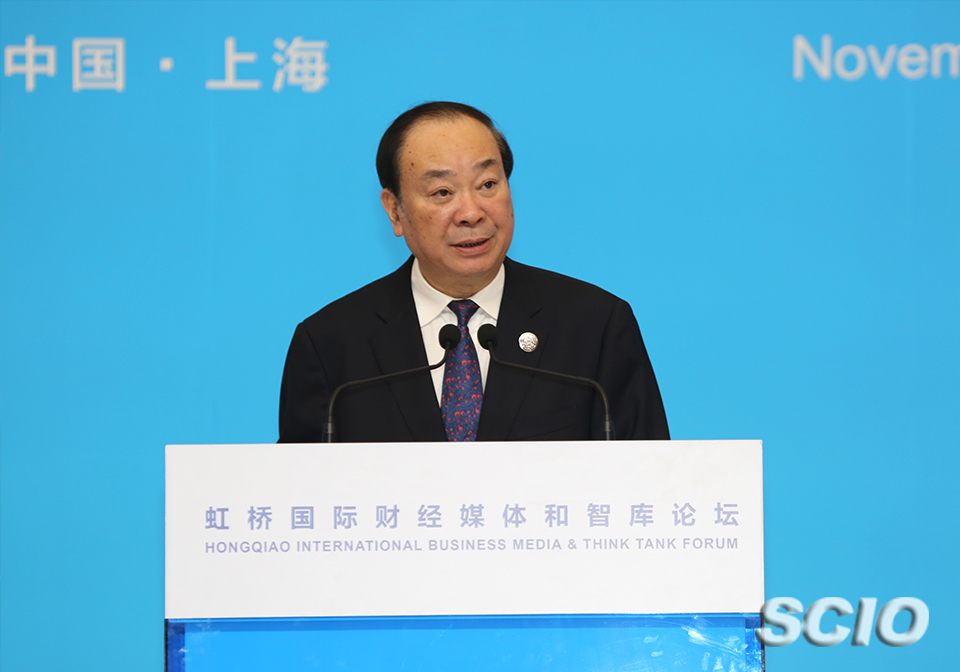Media, think tanks 'should boost trust'
Representatives from media, think tanks and businesses said at a forum on Monday they have an increasingly important role to play in explaining the new era of globalization to the public, as well as to decision-makers, and informing them about the possible consequences of trade protectionism and unilateralism.
Representatives from media, think tanks and businesses said at a forum on Monday they have an increasingly important role to play in explaining the new era of globalization to the public, as well as to decision-makers, and informing them about the possible consequences of trade protectionism and unilateralism.
The Hongqiao International Business Media and Think Tank Forum was held on the sidelines of the first China International Import Expo in Shanghai.

Huang Kunming, a member of the Political Bureau of the Communist Party of China (CPC) Central Committee and head of the Publicity Department of the CPC Central Committee, delivers a keynote speech at the opening ceremony of the Hongqiao International Business Media and Think Tank Forum in Shanghai, Nov. 5, 2018. [Photo by Jiao Fei/China SCIO]
Media and think tanks are important forces in influencing public opinion around the world, so they can do more in promoting the concept of a shared future for mankind, which aims to benefit all, said Huang Kunming, a member of the Political Bureau of the Communist Party of China Central Committee.
"Because the development concepts of different countries are different, it is inevitable that people will feel differently about the same policies. What the media and think tanks should do is boost mutual trust and eliminate misunderstandings, instead of creating and spreading conflict," said Huang, who is also the head of the Publicity Department of the committee.
Dominique de Villepin, former prime minister of France, said, "Today, everywhere you look, the spirit of cooperation is put at risk by the vicious cycle of protectionism, economic slowdown and international distrust."
Development imbalances are challenging growth and stability more than ever, and it's necessary now to set up a new pattern for cooperation in global trade and international investment, De Villepin said, adding that he believed the world has entered a new phase of globalization-the age of partnership, which should be the best response to the risk of isolation and protectionism.
Globalization has helped to lift many people out of poverty, and the media need to do a better job of telling the story, which is our mission and challenge, said Clifton Leaf, editor-in-chief of Fortune magazine in the United States.
"The more we promote an open economy, the more small businesses can benefit from it," said Ryan Stokes, CEO of Australian Capital Equity.
The representatives also expressed high expectations about the expo.
"The concept of the expo will guide the direction of the world's development onto the right track," said Zhou Shuchun, publisher and editor-in-chief of China Daily. China has integrated into the world by opening up, he said.

